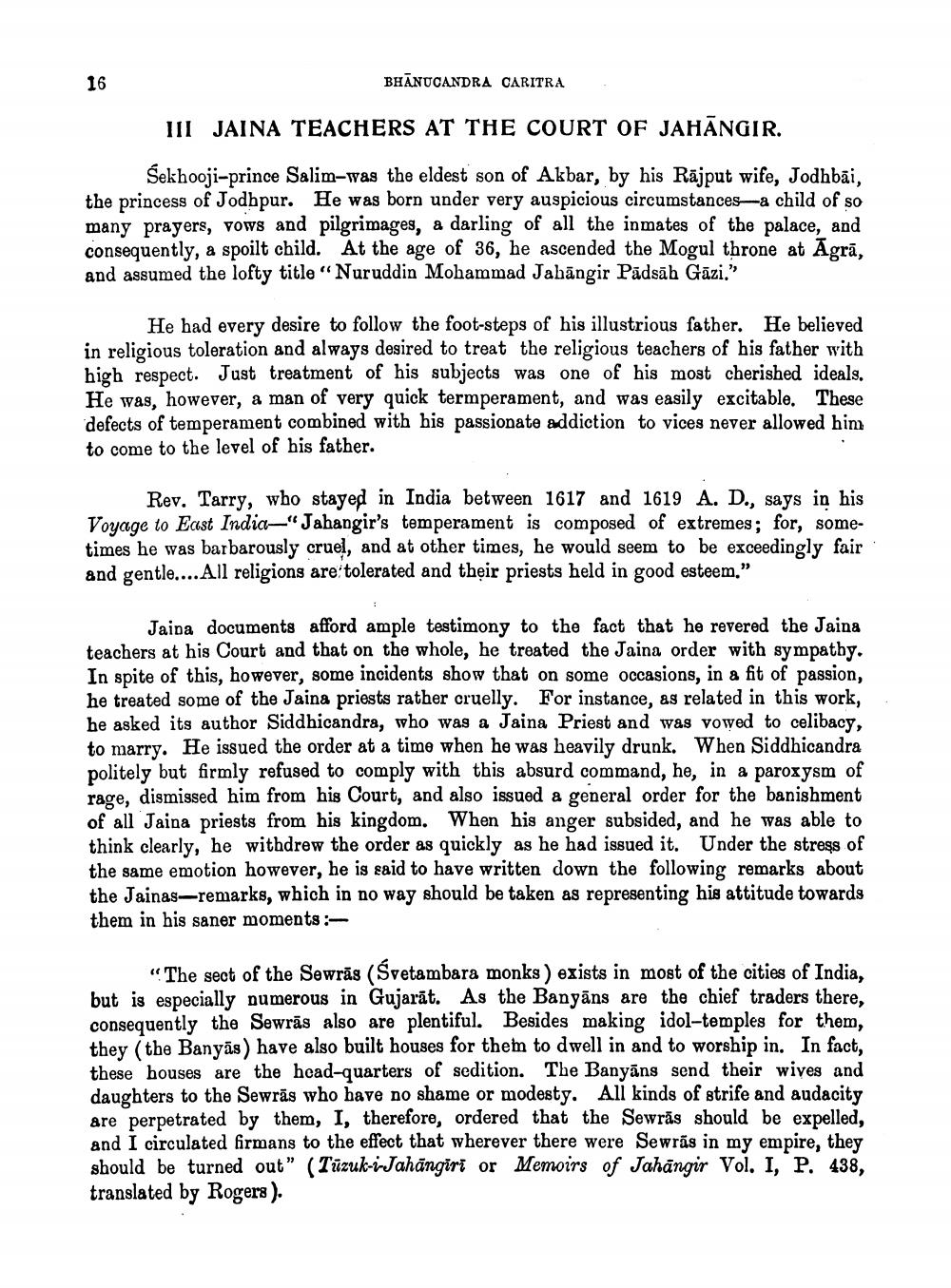________________
BHANUCANDRA CARITRA
III JAINA TEACHERS AT THE COURT OF JAHANGIR.
Sekhooji-prince Salim-was the eldest son of Akbar, by his Rajput wife, Jodhbãi, the princess of Jodhpur. He was born under very auspicious circumstances-a child of so many prayers, vows and pilgrimages, a darling of all the inmates of the palace, and consequently, a spoilt child. At the age of 36, he ascended the Mogul throne at Agra, and assumed the lofty title "Nuruddin Mohammad Jahangir Pädsäh Gāzi,"
16
He had every desire to follow the foot-steps of his illustrious father. He believed in religious toleration and always desired to treat the religious teachers of his father with high respect. Just treatment of his subjects was one of his most cherished ideals. He was, however, a man of very quick termperament, and was easily excitable. These defects of temperament combined with his passionate addiction to vices never allowed him to come to the level of his father.
Rev. Tarry, who stayed in India between 1617 and 1619 A. D., says in his Voyage to East India-"Jahangir's temperament is composed of extremes; for, sometimes he was barbarously cruel, and at other times, he would seem to be exceedingly fair and gentle....All religions are tolerated and their priests held in good esteem."
Jaina documents afford ample testimony to the fact that he revered the Jaina teachers at his Court and that on the whole, he treated the Jaina order with sympathy. In spite of this, however, some incidents show that on some occasions, in a fit of passion, he treated some of the Jaina priests rather cruelly. For instance, as related in this work, he asked its author Siddhicandra, who was a Jaina Priest and was vowed to celibacy, to marry. He issued the order at a time when he was heavily drunk. When Siddhicandra politely but firmly refused to comply with this absurd command, he, in a paroxysm of rage, dismissed him from his Court, and also issued a general order for the banishment of all Jaina priests from his kingdom. When his anger subsided, and he was able to think clearly, he withdrew the order as quickly as he had issued it. Under the stress of the same emotion however, he is said to have written down the following remarks about the Jainas-remarks, which in no way should be taken as representing his attitude towards them in his saner moments:
"The sect of the Sewrus (Śvetambara monks) exists in most of the cities of India, but is especially numerous in Gujarat. As the Banyans are the chief traders there, consequently the Sewräs also are plentiful. Besides making idol-temples for them, they (the Banyas) have also built houses for them to dwell in and to worship in. In fact, these houses are the head-quarters of sedition. The Banyans send their wives and daughters to the Sewräs who have no shame or modesty. All kinds of strife and audacity are perpetrated by them, I, therefore, ordered that the Sewräs should be expelled, and I circulated firmans to the effect that wherever there were Sewräs in my empire, they should be turned out" (Tüzuki-Jahangirt or Memoirs of Jahangir Vol. I, P. 438, translated by Rogers).




